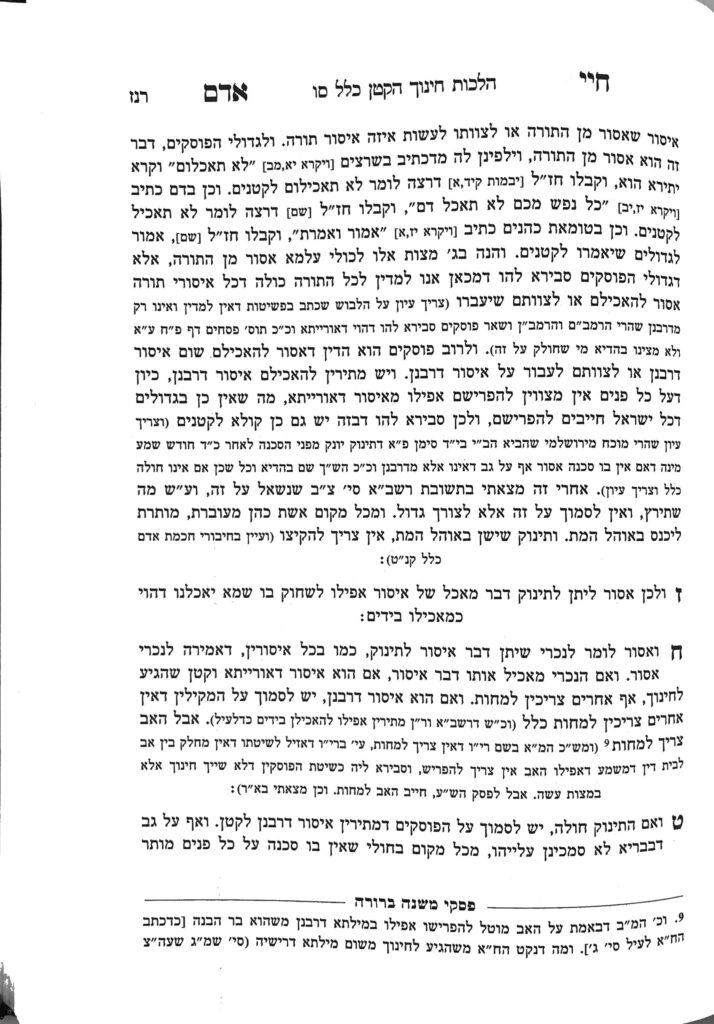We are beginning siman 7. The Chayei Adam writes that it is assur to give a child an edible item to play with which is assur for the child to eat, because the nature of a child is to put things in their mouth. Thus, even if the adult gives the assur item to the child for the purpose of play, if the child ends up eating it, it is considered sefiya b’yadayim on the part of the adult. The source for this halacha is the Gemara, which says that children used to be given grasshoppers to play with as toys, but one may not give a child a tamei grasshopper, in case they come to eat it.
In siman 8, the Chayei Adam writes that the same way a Jewish adult cannot perform sefiya b’yadayim, one cannot ask a non-Jew to perform sefiya b’yadayim either, because amirah lenochri is assur. We are familiar with the concept of amirah lenochri as it regards shabbos, but the Gemara in Bava Metzia makes it clear that the issur of amirah lenochri applies to all the issurim in the Torah. The Gemara says that one may not tell a non-Jew to plow with two different animals, just like a Jew cannot (see Devarim 22:10). In the same way, one may not instruct a non-Jew to feed a katan issur.
If one does not instruct the non-Jew, but sees the non-Jew feeding issur to a katan on their own, if the item in question is an issur deoraysa, the adult must stop the non-Jew. As we have learned previously (shiur 1285), once a child has reached the age of chinuch, others are obligated to stop the child from transgressing issur. (Although the Chayei Adam brought two opinions, he paskened that one should be machmir on an issur deoraysa.)
If the item in question is an issur derabanan, one may be meikil and rely on the opinion that others (besides the parents) are not obligated to stop the child.
The Chayei Adam clarifies that the father would be obligated to stop the child regardless, as we have learned previously (shiur 1284). From the language of the Chayei Adam, it appears that the father’s chiyuv only applies only from the age of chinuch, but the Piskei Mishnah Berurah points out that the Chayei Adam means the age that the child understands the concept of “no” (bar havana), as he stated previously (see shiur 1284). The age of chinuch applies to the question of when other people are responsible to stop the child, but the parents’ chiyuv begins at the age when the child understands the concept of “no”.
Summary
- It is considered sefiya b’yadayim to give a katan something assur to eat with which to play, a he may come to eat it.
- It is considered amirah lenochri to ask a non-Jew to perform sefiya b’yadayim on a katan.
- If one sees a non-Jew feeding a katan issur, if the issur in question is an issur deoraysa, one is obligated to stop the child from eating the issur, provided the child is above the age of chinuch. The parents would be obligated to stop the child once they are a bar havana.
- However, if the issur in question is an issur derabanan, only the parents would be obligated to stop the child from eating the issur.



